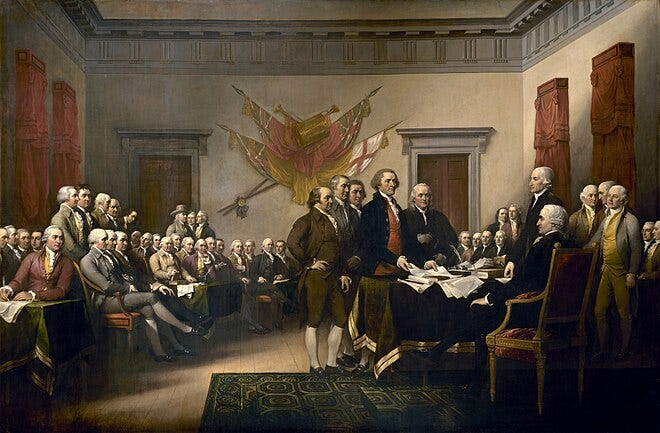The Forgotten Art of Disagreement
In light of recent turmoil over H-1B Visa immigration, it's worth taking a moment to remind ourselves: Politics is not friendship - it is fundamentally the *art* of disagreement.
The comfort, convenience, and relatively minor nature of most political issues in our lifetime, has caused a lot of people to lose sight of this.
Politics is the art of getting things you want by forming and maintaining consensus, even with groups you disagree with, dislike, or sometimes even loathe. If the issues you *can* agree on are worth more than those you can't, it's best to keep the coalition together, or try to win them over.
What follows is not a prescription for how anyone should feel, but some insight on how we should act, if we want to win, and ultimately thrive.
We don't have to like all of our allies or support all of their positions. We share a societal cause with them, not an apartment. We don't have the luxury of tearing down alliances with those we 99% agree with, over the 1% that we don't. Anyone that doesn't understand that, needs to work on themselves, before they try to solve the world's problems.
But, here's the real wisdom. The same holds true, at almost any percentage. If you 80% agree with your allies, put aside the 20% where you don't. Save your animosity, insults, and "bridge burning" for those you truly can't find common ground with. Until you run out of those (and nobody ever does) keep the debate with your allies respectful and civil.
The need for this approach is apparent to anyone that's studied enough history, American or otherwise. Read the Federalist Papers. The Constitution was largely forged by personalities who would have dueled to the death - and some actually did. The Bill of Rights was debated and agreed upon by men who came from opposite sides of a slavery debate.
Most modern political disagreements are nowhere close to that. At least in the short term, Americans who believe in freedom are going to have to to suck it up and adapt to that reality, because there's a lot at stake. In critical times, leaders and citizens have to consider the cost of an insult, or a burnt bridge, *before* they pull the trigger.
But most importantly, consider the past and future benefits of that alliance. Whichever side of the debate you're on, the "Tech Right," and "Nationalist Right" have both accomplished things together, that neither was able to accomplish alone - and there's still more to do.
That said, the spirited debate of the past several days is encouraging, and this kind of public debate is ultimately is how you move the needle. It's been missing from American society for so long, many of us aren't used to it.
We will get there.
Recursu Aeternam Eiusdem


